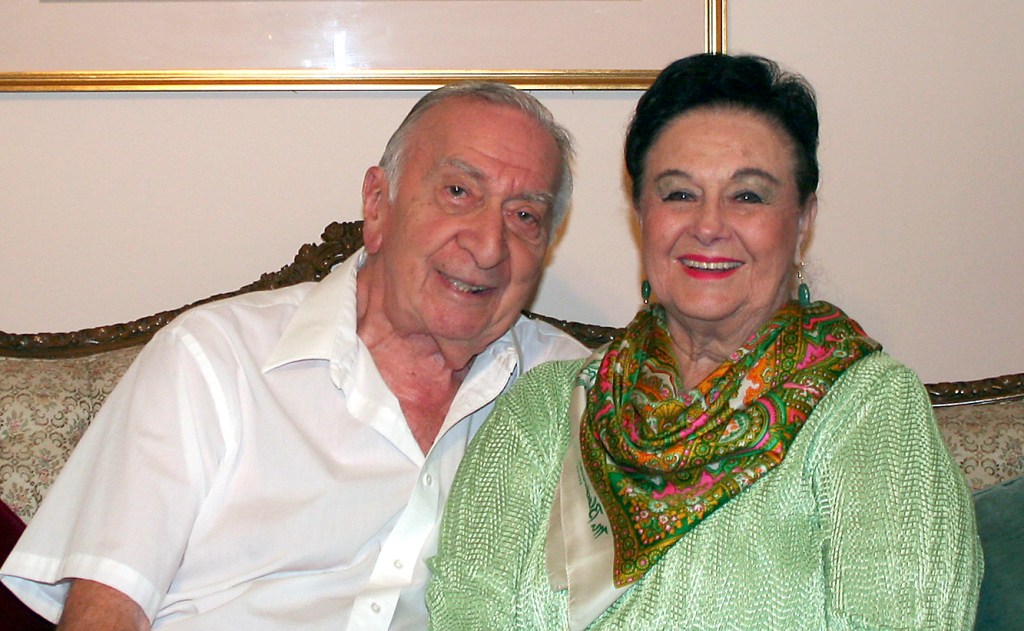Recording a soldier’s tale
Published 11:24 pm Monday, November 10, 2014

- George Aigen with his wife, Joyce, at their Valdosta home.
VALDOSTA — By any measure, George Aigen has seen terrible things.
An Army corporal in World War II, Aigen was among the first soldiers to enter Dachau, one of the oldest Nazi concentration camps and the first in Germany.
Trending
By 1945, when the camp was liberated, it had been running for 12 years.
Aigen and his fellow soldiers — members of the 1269th Combat Engineers Company — were accustomed at this point to the horrors of war.
Dachau horrified them.
Here, a rail car full of 2,310 dead women and children.
Here, piles of the dead.
Here, prisoners like skeletons, skin stretched across bones.
Trending
Eventually, more help would arrive at Dachau, but at the time, Aigen’s unit had to move on after a couple days. They were still in the middle of a war, and there were still things to do.
This was decades ago, more than half a century now, and no one could blame Aigen for not talking about it, for not returning to what he calls, with good reason, one of the worst days of his life.
“That morning still is. That never changes.”
But in 2005, he started talking about it, giving talks and presentations about his experience in WWII in general and Dachau in particular.
It wasn’t an easy thing.
To talk about the past, Aigen had to re-experience it, re-walk through the gates of the camp, re-see the things he saw. It was a draining, emotionally exhausting experience.
“That’s why I wanted to quit way back, but Joyce (Aigen’s wife) didn’t want to let me,” said Aigen. “I give her credit for that. I’ve learned that it’s important enough that I really should continue to speak as long as I can.”
Along with all these talks, the Aigens and Bobbie Warren, a lecturer at Valdosta State University’s English department, have spent the last couple of years working to get his story registered with the Library of Congress’ Veterans History Project.
It took time to get all of the material together and meet all of the criteria, but last month they received notice that Aigen’s submission had been received.
During the next six months, the library’s staff will process Aigen’s story and materials.
From there, it will go into into the Library’s permanent collection where it can be accessed by researchers, whether next year or 60 years from now.
It’s something that the Aigens and Warren are encouraging other local veterans to do — recording their stories for years to come.
“Anyone who’s researching can find and be directed to the information,” said Aigen.
It’s a way for Aigen to continue teaching his experiences.
And Aigen will keep talking about it, reliving the horror at Dachau, and also reliving a happier memory, though no less emotional.
It’s a memory that still, after years of recounting it, makes him stop for a second, the memory of the day he heard the war was over.
He was in France on a mission, having been sent from Germany.
He was walking through a town when the church bells started ringing, one after the other after the other, signaling the end of the war.
The door to a nearby house opened and a little French girl walked out.
She skipped up to Aigen, took his hand, kissed it and said, “Merci.”
Merci, George Aigen.
Aigen is scheduled to present “A Liberator of the Dachau,” 1 p.m. today, American Legion, Post 13, 1301 Williams St., as part of Veterans Day commemorations. The Legion also hosts a ceremony at 10 a.m. today, Martin Stadium, Lowndes High School. At noon, at the Legion, the post will celebrate the Marine Corps’ 239th birthday with the oldest and youngest member Marines cutting the cake.


